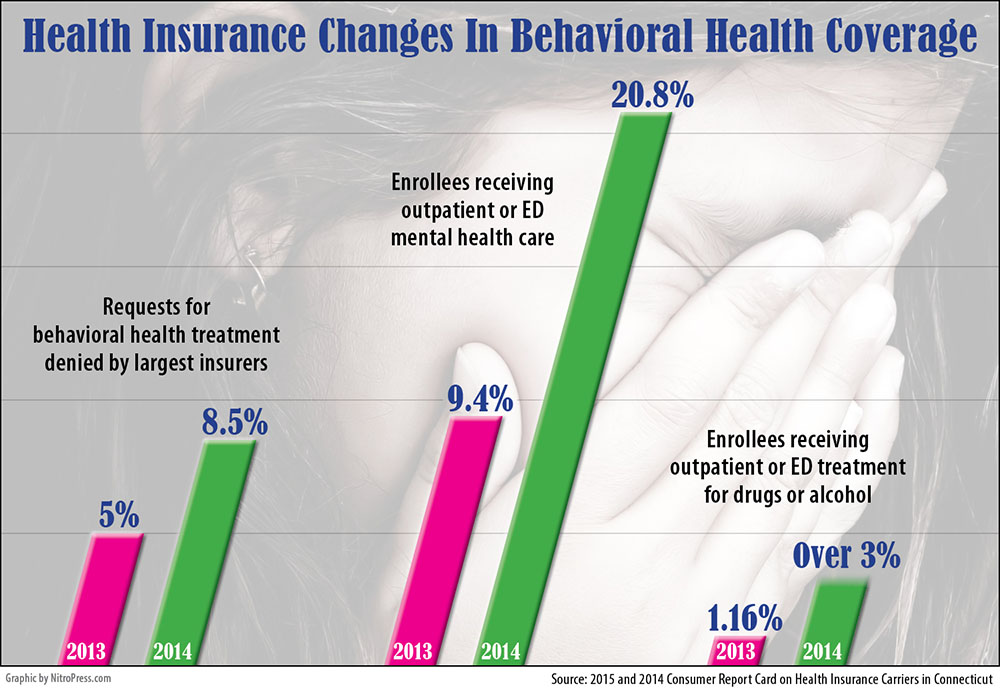
Introduction
Once overlooked, mental health now gains the recognition it deserves, especially in health insurance coverage. Everywhere, the call for comprehensive mental health coverage in insurance policies increases.
The importance of mental health coverage in health insurance
- Addressing a Critical Need: Mental health coverage has become increasingly vital, enabling individuals to access and afford essential mental health services.
Current state of mental health coverage
Progressive Gains: While currently not comprehensive, many insurance companies are beginning to update their policies, gradually incorporating mental health coverage. The journey to full coverage may be long, but it is a step in the right direction.
Understanding Mental Health Coverage
It’s an evolving field, where mental health services are becoming increasingly inclusive in health insurance. This realization is owing to the rise in mental health issues worldwide.
Definition and scope of mental health coverage
Mental health coverage typically refers to insurance policies that cater to treatment and diagnosis of mental health disorders. Its scope spans across outpatient care, medication, psychiatric therapy, and more.
Types of mental health services covered by insurance
Some of the services catered by health insurance include outpatient therapy, crisis intervention, psychiatric hospitalization, residential treatments, and mental health medication coverage.

The Impact of Mental Health on Overall Well-being
As physical health imperatively contributes to one’s overall well-being, so does mental health.
The connection between mental health and physical health
The entwined relationship between mental health and physical health isn’t one to overlook. A good mental state can significantly enhance one’s physical health and vice versa.
The consequences of inadequate mental health coverage
Increasingly, the consequences of insufficient mental health coverage in health insurance plans become glaring. Many face dire financial constraints due to the exorbitant cost of mental health care, leading to neglected mental health conditions.
The Rising Demand for Mental Health Coverage
As the incidence of mental health disorders has increased, so too has the demand for insurance plans to cover mental health services. Society’s growing awareness and destigmatization of mental health issues are key drivers of this surge.
Increasing prevalence of mental health disorders
In today’s fast-paced society, mental health disorders are on the rise as stress, lifestyle changes, and world events take their toll on individuals’ mental wellbeing.
Growing awareness and destigmatization of mental health issues
A societal shift is evident as mental health issues, once stigmatized and brushed under the carpet, are now openly discussed and recognized. With increased awareness, the demand for coverage of mental health services in health insurance policies has grown exponentially.
Challenges in Obtaining Adequate Mental Health Coverage
The escalating demand for mental health services is clear, necessitating a robust response from health insurers. However, access to adequate mental health cover has been a rough ride due to a number of hurdles.
Limited coverage options and high costs
Most health insurers offer only minimal coverage for mental health, exposing the insured to high out-of-pocket expenses. These high costs discourage many from seeking needed mental health services.
Barriers to accessing mental health services
The accessibility of mental health services is another significant issue. Barriers such as lack of providers within insurance networks and burdensome documentation processes can often inhibit individuals from accessing necessary mental health care. Thus, the call for improved coverage of mental health services in health insurance plans is both urgent and necessary.
The Benefits of Comprehensive Mental Health Coverage
We are now in an era where prioritizing mental health is not a luxury, it’s a necessity. Hence, the inclusion of mental health coverage in health insurance is drawing attention.
Improving access to care and early intervention
Comprehensive mental health coverage paves the way for easier access to essential care procedures, allowing faster diagnosis and early intervention. It minimizes the delay that often leads to a worsening of conditions.
Promoting overall well-being and productivity
Such coverage also promotes overall well-being by considering mental health an imperative part of overall health. It acknowledges the potential impacts of untreated mental health issues on work productivity and life quality, emphasizing insurance’s role in fostering a healthier, happier society.
Legislation and Policies Promoting Mental Health Coverage
Amid growing acknowledgement of mental health in overall wellness, legislative measures are being put into place.
The Mental Health Parity and Addiction Equity Act
This Act, for instance, requires insurance providers to apply similar limits to mental health and substance abuse services as those for medical and surgical coverage. This means mental health cannot be neglected under the pretext of insurability limitations.
Recent developments and future directions
In the quest for holistic wellbeing, further action is anticipated. The incorporation of mental health coverage in health insurance thus moves towards becoming a mandatory tale rather than an optional feather.
The Role of Health Insurance Providers
As healthcare becomes more encompassing, health insurance providers are put in a position to adapt to new demands. Among these is the rising need for mental health coverage, a facet often overlooked in traditional insurance coverage.
Strategies for insurance companies to improve mental health coverage
It’s high time for insurance companies to make an essential shift: include mental health in their coverage. This addition doesn’t merely serve as a benefit—it’s an imperative part of holistic healthcare.
Collaborative efforts with healthcare providers and mental health professionals
A collaborative approach is necessary for this shift. By working alongside health providers and mental health professionals, insurance companies can provide comprehensive and responsive coverage for their clients. This move isn’t just good for business, it’s a step towards a healthier society.
Advocacy and Resources for Mental Health Coverage
With increasing recognition of the significant impact of mental health disorders on individuals and society as a whole, there’s an urgent need for enhancement in health insurance coverage for mental health services.
Supportive organizations and initiatives
Various organizations and initiatives have risen to support this cause, playing instrumental roles in advocating for improved mental health policies and coverage within health insurance schemes.
Tips for advocating for better mental health coverage
As an individual, you’re not powerless. There are actionable steps you can take to advocate for better mental health coverage. These include becoming educated about existing policies, engaging with advocacy groups, and taking advantage of legislative processes to press for change.
Conclusion
In today’s fast-paced, stressful world, the need for comprehensive mental health coverage in health insurance policies is more urgent than ever. Substance abuse, suicide rates, and mental illnesses are on the rise, underscoring the critical importance of health insurance coverage for mental health services.
The urgent need for comprehensive mental health coverage
The acknowledgement that mental health is just as essential as physical health is the first step towards fostering a healthy society. Adequate mental health coverage can help lessen the increasing burden of mental illnesses worldwide.
Steps towards improving mental health coverage in health insurance
To address this, health insurance providers must broaden their coverage to involve mental health services, including counselling sessions and psychiatric treatment. Policy change and advocacy are the crucial steps towards ensuring this inclusion. The battle for better mental health coverage continues, but it is a necessary one.